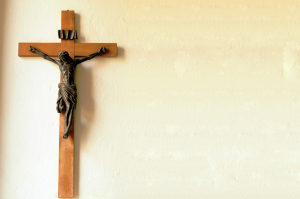What's in a Name?
He who dwells in the secret place of the Most High shall abide under the shadow of the Almighty. I will say of the Lord, "He is my refuge and my fortress; my God, in Him I will trust."
- Psalm 91:1–2
To show us different facets of His nature, God gives us different names for himself. The words used in Psalm 91:1–2 include 'Elyôwn, Shaddai, Jehovah, and 'Elōhîm. First, we have "the Most High:" "He who dwells in the shelter of the Most High. . . ." The Hebrew word used here for Most High, 'Elyôwn, speaks of possession. It is the idea of owning something. It simply reminds us that God owns and possesses everything, and that includes you and me.
Then there is the word "Almighty:" "He who dwells in the secret place of the Most High shall abide in the shadow of the Almighty. . . ." That is the word Shaddai. The thought here is of provision. It is wonderful to know that God owns everything. But it also wonderful to know that He wants to provide for us. Not only is He a living God, but He also is a giving God.
Then we have "the Lord:" "I will say of the Lord. . . ." That phrase "the Lord" is Jehovah, a unique name God called Himself before His own people, the Jews. It speaks of covenant and His promise to them.
Finally, there is "My God:" "My God, in whom I trust." That is the Hebrew word 'Elōhîm, which tells us there is one God who is triune, or three in one: the Father, Son, and Holy Spirit. It also reminds us of the power of God.
So when we put it all together, we see that the all-knowing, all-powerful God who possesses heaven and Earth, who has entered into a special covenant with us, wants to provide for our needs. I want to know more about this God, don't you?



























